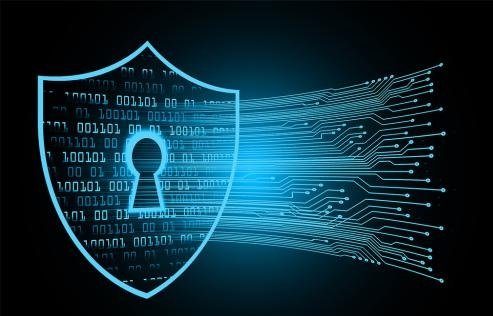Cybersecurity Audit Completed by Government Across 15 Key Ministries

A Landmark Move Toward National Cyber Resilience
The Cybersecurity Audit Completed by Government across 15 federal ministries represents a historic leap forward in Pakistan’s efforts to secure its digital ecosystem. Under Phase I of the national “Cyber Security for Digital Pakistan” initiative, this audit addressed vulnerabilities within key civilian departments, divisions, and agencies. The magnitude of this audit underscores the government’s commitment to safeguarding its digital infrastructure and citizen data.ⁱ
Scope of the Federal wide Cybersecurity Review
With the Cyber security Audit Completed by Government, over 15 institutions were comprehensively assessed, including:
-
Ministries of Finance, Interior, Foreign Affairs, Education, Health
-
Economic Affairs Division
-
Power and Petroleum Divisions
-
National Disaster Management Authority (NDMA)
Each entity underwent vulnerability scanning, policy audits, access control reviews, and incident-response testing. More than 800 past incidents and attack vectors were analyzed and remediated across the audit lifecycle.ⁱ
Key Findings From the Audit Process
During this major endeavor, the Cybersecurity Audit Completed by Government uncovered several critical deficiencies:
-
Outdated software and unpatched systems in legacy applications
-
Weak password usage and multi factor authentication gaps
-
Inadequate security protocols for third party vendors
-
Absence of standardized incident reporting and response plans
Audit teams issued 60 security advisories, developed 15 new cybersecurity policies, and signed 20 MoUs with universities and cyber firms to enhance collaboration. These steps directly followed findings from the audit results.ⁱ
Capacity Building & Skills Development Efforts
A vital facet of the Cybersecurity Audit Completed by Government was building cybersecurity skills among officials. Over 56 training sessions including hackathons and tabletop exercises were conducted for ministry staff, CISOs, and IT teams. These workshops focused on:
-
Cyber hygiene and awareness
-
Incident response and containment drills
-
Phishing simulation exercises
These programs help sustain audit benefits long-term by embedding a security-first mindset across government.ⁱ
Role of nCERT/PKCERT and Cyber Governance Ecosystem
The audit was executed in close coordination with Pakistan’s institutional cybersecurity backbone. The Cybersecurity Audit Completed by Government was guided by national Cyber Emergency Response Team (nCERT), later renamed PKCERT, which ensures preparedness for cyber incidents nationwide.ⁱ
To maintain high standards, PKCERT also released a registry of certified auditing firms that meet ISO/IEC 27001 and other international benchmarks. This registry ensures audit consistency and quality for subsequent phases.
Strategic Relevance and Future Roadmap
By completing this audit, the Cybersecurity Audit Completed by Government initiative sets a strategic precedent. Pakistan enters a new chapter in digital governance where cyber readiness is embedded across ministries before national digital services go live.
Phase II is already underway, targeting public enterprises and provincial departments. The initiative includes plans to expand infrastructure, fortify cybercrime response units, and modernize Security Operation Centers (SOCs).ⁱ
Regional Context and Cyber Threat Landscape
Pakistan’s audit project took place amid an intensifying state sponsored cyber threat landscape in the region. Known actors like SideWinder, APT10, and others have frequently targeted South Asian governmental systems.ⁱ The audit creates enhanced defensive depth and builds early threat detection capabilities across ministries.
Transparency, Public Accountability, and Consumer Trust
Transparency has been a watchword throughout this process. The Cybersecurity Audit Completed by Government comes with a public disclosure strategy executive summaries of key vulnerabilities were shared publicly, with remediation timelines overseen by audit committees.
Industry experts and civil society have welcomed this approach, noting that cybersecurity governance must be transparent to build user trust in public e-services and national digital platforms.
Findings and Actionable Recommendations
Some of the most actionable recommendations emerging from the Cybersecurity Audit Completed by Government include:
-
Upgrades to operating systems and critical security patches
-
Implementation of access control protocols and MFA
-
Mandatory third party cyber due diligence
-
Continuous threat monitoring and inter-agency tickets sharing
-
Annual re-audits and compliance verification by accredited firms
These measures aim to institutionalize reforms and prevent past lapses from recurring.
Public and Private Sector Synergy
The audit fostered new ties between academia, startups, and defense cyber hubs. Academic institutions like NUST and Air University, under NCCS guidance, are now part of collaborative cyber security research and training programs.
This public private synergy ensures that lessons from the Cyber security Audit Completed by Government are translated into practical capacity and innovation.
Oversight & Enforcement: Ensuring Accountability
Post audit, the federal IT ministry entrusted oversight to a joint review committee. This team will monitor remediation progress and issue periodic progress reports. Ministries failing to act could face budgetary consequences or administrative sanctions.
This enforcement step is critical to ensuring the Cyber security Audit Completed by Government yields long term benefits rather than temporary fixes.
Broader Economic and Social Significance
With Pakistan’s digital economy on the rise including e governance, fin tech, and health information systems secure platforms are essential. The audit reinforces confidence in public sector services and lays groundwork for future digital expansion.
By completing this audit, the Cyber security Audit Completed by Government initiative positions Pakistan to meet increasing demands on secure digital infrastructure, while aligning with global cyber security frameworks.




